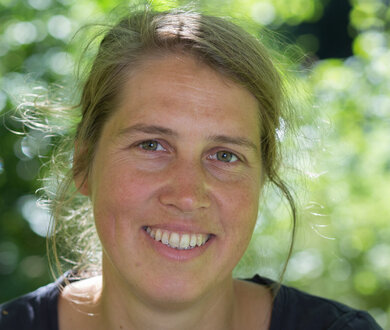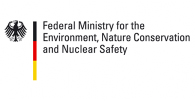MORGEN
Revitalisation of mires in Greifswald as a local adaptation strategy to climate change
Greifswald and Western Pomerania are vulnerable to climate change due to their location on the Baltic Sea coast. Here droughts in summer and floodings in winter will become more frequent. However, the region’s agricultural and urban vulnerability can be reduced by rewetting mires and introducing adapted land use (paludiculture = productive use of wet peatlands).
Within the county Western Pomerania-Greifswald 82,350 ha of fens were drained for agricultural use. These sum up to 30% of the county’s agricultural land and they do emit 17-83 tons of CO2 per year. Therefore the project is aiming to implement paludiculture on pilot sites while involving all actors who have an impact on land use and water level in fens and on utilisation of biomass. These actors will participate in the search for suitable areas, in developing objectives and concrete plans for implementation and the local biomass utilisation.
Thus, the project also intends to strengthen urban-rural relations via the production and utilisation of biomass from paludiculture. The biomass may deliver thermal energy by combustion or be processed into building materials such as insulation or boards. Greifswald is especially interesting as a model region, since it can profit from experiences of the project "Greifswald Agrarinitiative" which focuses on sustainable agriculture in and around the city. Further synergies arise from the Initiative "Sauberer Ryck" (initiative for a clean river Ryck).
![[Translate to EN:] Moorspiel (Foto: C. Lechtape) [Translate to EN:] Moorspiel (Foto: C. Lechtape)](/fileadmin/_processed_/6/3/csm_P1490853_6890f68f6d.jpg)
MORGEN
Revitalisation of mires in Greifswald as a local adaptation strategy to climate change
Location: Greifswald, Germany
Duration: 01.2018 - 09.2021
Funded by the Federal Ministry for the Environment, Nature Conservation and Nuclear Safety (BMU) by a decision of the German Bundestag.

Christina Lechtape
Peatland rewetting, paludiculture
Tel +49 3834 8354 226
![[Translate to EN:] Moore im Greifswalder Stadtgebiet (Foto: C. Lechtape) [Translate to EN:] Moore im Greifswalder Stadtgebiet (Foto: C. Lechtape)](/fileadmin/_processed_/e/f/csm_P1530360_header_e9f75e59b4.jpg)


